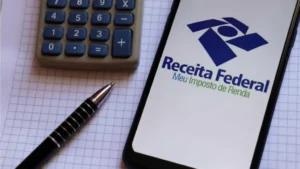Betting tax and grant may change in regulation

Written by :
Heloisa Vasconcelos

Reviewed By :
Larissa Borges

Taxation is one of the most controversial topics related to the regulation of sports betting.
Both provisional measure 1,182/23 and bill 3,626/23 , which deal with the subject, bring an 18% rate that will be charged on the Gross Gaming Revenue (GGR) of betting houses that want to operate in Brazil.
The bill also imposes a 30% tax on gamblers’ winnings.
It is possible, however, that these rules will be modified during the vote in the Federal Senate. Senators forwarded 55 amendments to bill 3,626 and some of them deal precisely with taxation and granting.
If the changes are approved, the text will return to the Chamber, where deputies will be able to accept or reject the proposed changes before the betting regulation becomes law.
Taxation for the gambler
Bill 3,626/23 establishes that bettors will be taxed in a similar way to what happens today with lottery prizes, with a rate of 30% .
UNDERSTAND : An exemption limit of R$2,112 is considered for each gain, with taxation only being applied to what exceeds this range.
Two amendments to the bill advocate changing the rules that were approved by the House.
Amendment 29, by Senator Nelsinho Trad, establishes that the tax collection must be calculated by the positive difference between the winnings obtained from prizes resulting from bets and the cost of the total bets.
“By establishing fair taxation, we can mitigate the risks of bettors seeking alternatives in the illegal market, where operating margins are usually more attractive,” he highlights.

Senator Ciro Nogueira also proposed a change in the rules through Amendment 18. He places a 25% rate on net premiums above R$500.
In the text, the net prize is considered to be “the result equal to the difference between the value of the prize to be paid and the value of all bets made previously, within a period of 30 (thirty) days, by the same bettor, provided that the result is positive”.
For the professor at IBMEC and Mackenzie Brasília and partner at Madrona Advogados, Rodolfo Tamanaha, there may be a change in the logic of taxation applied to individuals.
This is because the value of the prizes in fixed-odds bets is considerably lower than those paid in lotteries. Therefore, it is possible that a large part of the bets fall within the exemption range since the system deducts the taxes monthly directly at source.
![]()
“ The logic of this taxation is to receive amounts very episodically, but as in betting it is possible to receive every day, perhaps it would be the case to change. ”
Rodolfo TamanahaProfessor at IBMEC and Mackenzie Brasília and partner at Madrona Advogados
Corporate tax
In the case of betting houses, the bill brings the GGR taxation model from other countries.
The 18% rate is a sum that considers distributions for social security, basic education, tourism, the sports ministry and the national public security fund.
Even though names in the gaming market consider the current rate to be already high , Amendment 20, by Senator Dorinha Seabra, seeks to increase the tax by 2 pp , expanding the contribution to basic education.
The vice-president of the Brazilian Institute of Sports Law (IBDD), Mariana Chamelette, believes that it is possible that there will still be an increase in the tax rate during the vote in the Senate, but she fears the impacts that this could have on the market.
![]()
“ If fees and concessions are too high, some operators may choose not to enter the market or may be forced out of it. ”

Mariana ChamelleteAttorney
Rodolfo Tamanaha highlights that the future of the vote is quite uncertain given the strength of conservative parliamentarians, who may encourage an increase in taxation.
“Some members of Congress see it as gambling, so they think that a high tax rate should be imposed to prevent gambling addiction. We need to see how Congress will understand it. If they are hesitant, perhaps the tendency will be to maintain the 18% rate,” he says.
Change in grant
The fee that must be paid by sports betting operators to operate in Brazil was also the subject of amendments proposed by senators.
The bill establishes the payment of a grant “limited to R$30 million”, with a limit of one electronic channel, valid for up to 3 years.
For Senator Rogério Carvalho, the concession limit should be extended to up to 2 electronic channels, to avoid double charging for websites and applications, for example.
“It violates the principle of reasonableness if it regulates the payment of a concession fee for the operation of the brand in an iOS environment and another in an Android environment and another for the website”, he argues in Amendment 6.
Amendment 14, authored by Senator Soraya Thronicke, extends the grant term to up to 5 years.
“In the current situation, it will be a limiting factor for companies as it will not enable the maximum return on investment,” he states.
Mariana Chamelete highlights that the value of the grant may be decisive in the future experience of consumers. She believes that changes may occur during the voting.
“Any high cost in the operation with high concession value and tax cost will be passed on to the bettor, for example with less attractive odds and lower amounts applied to improving the consumer experience”, he states.
